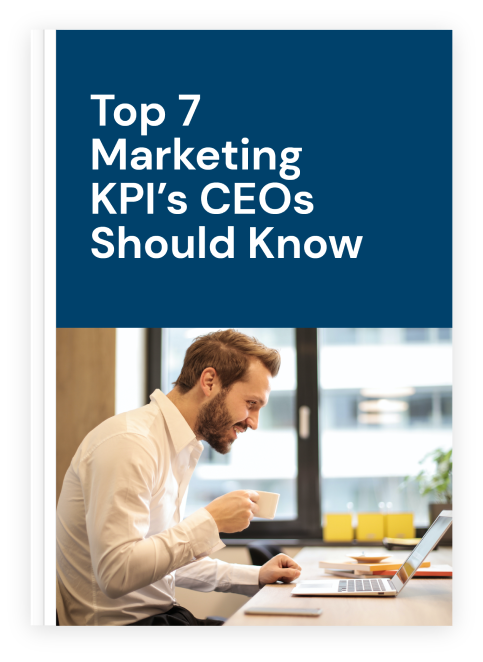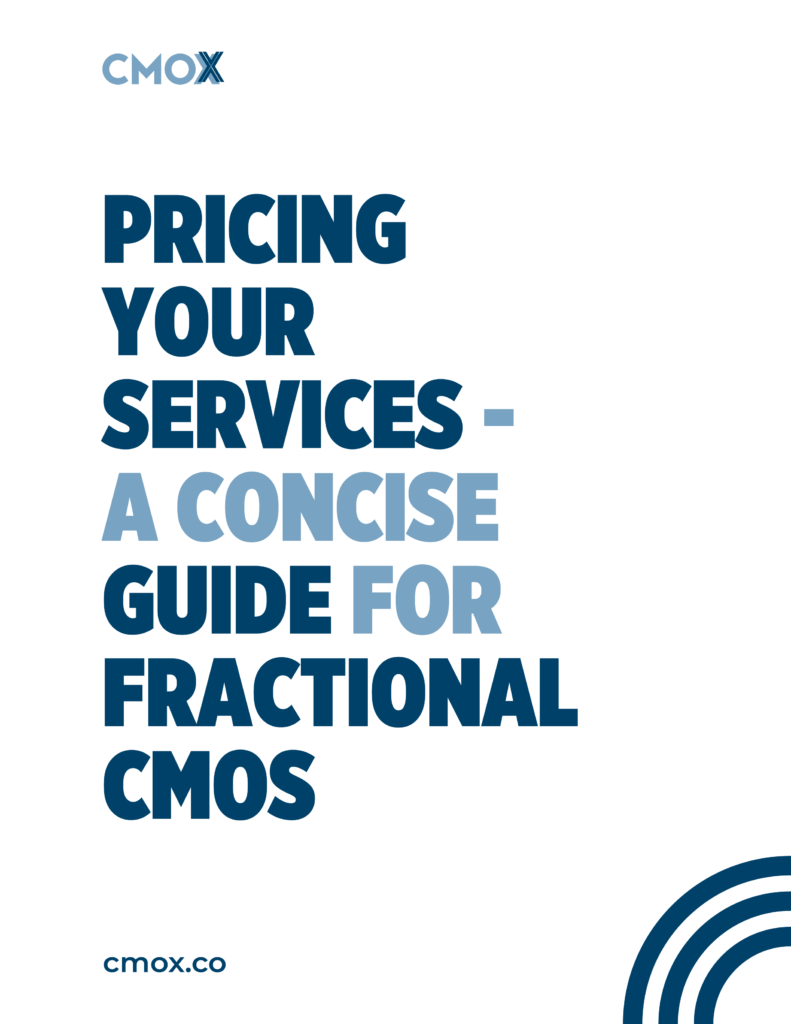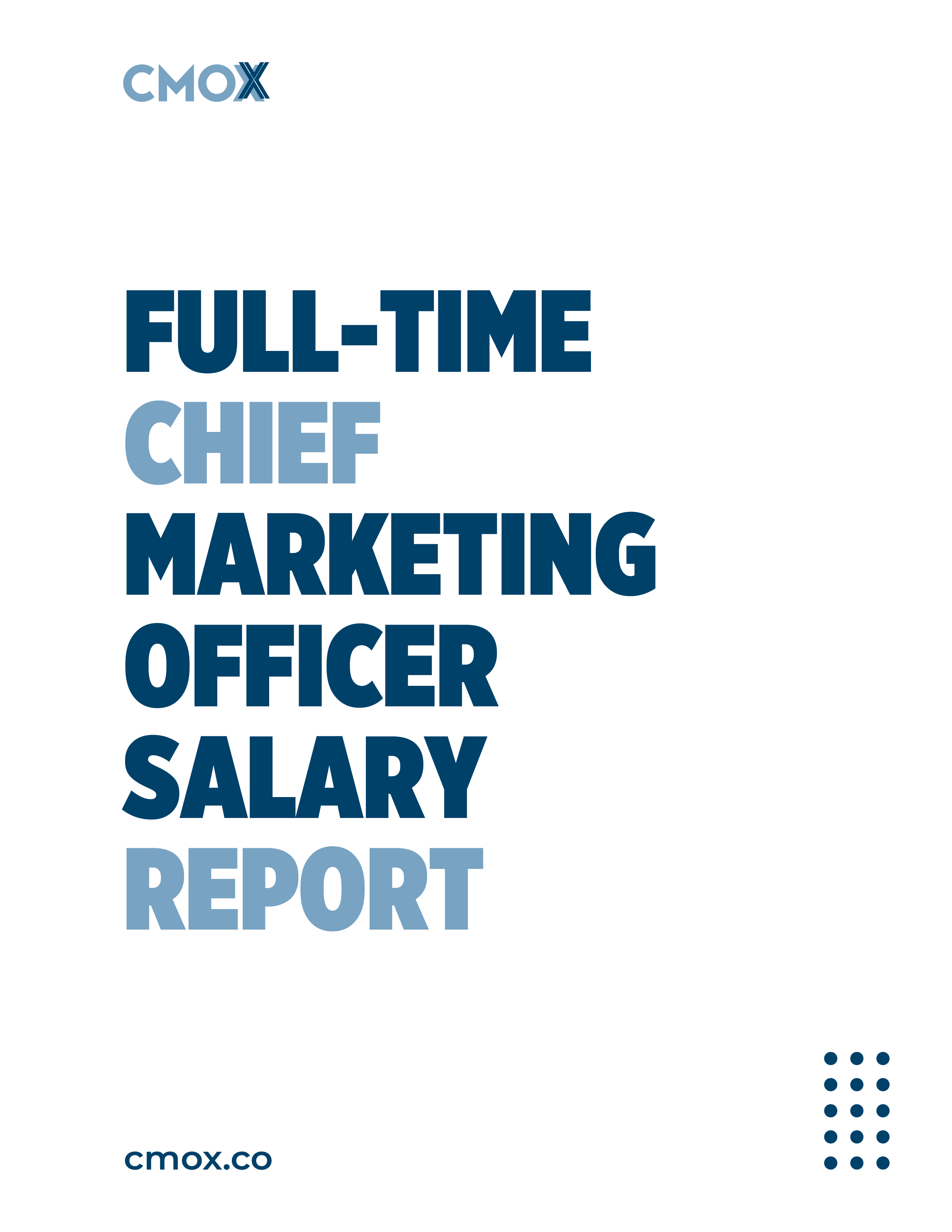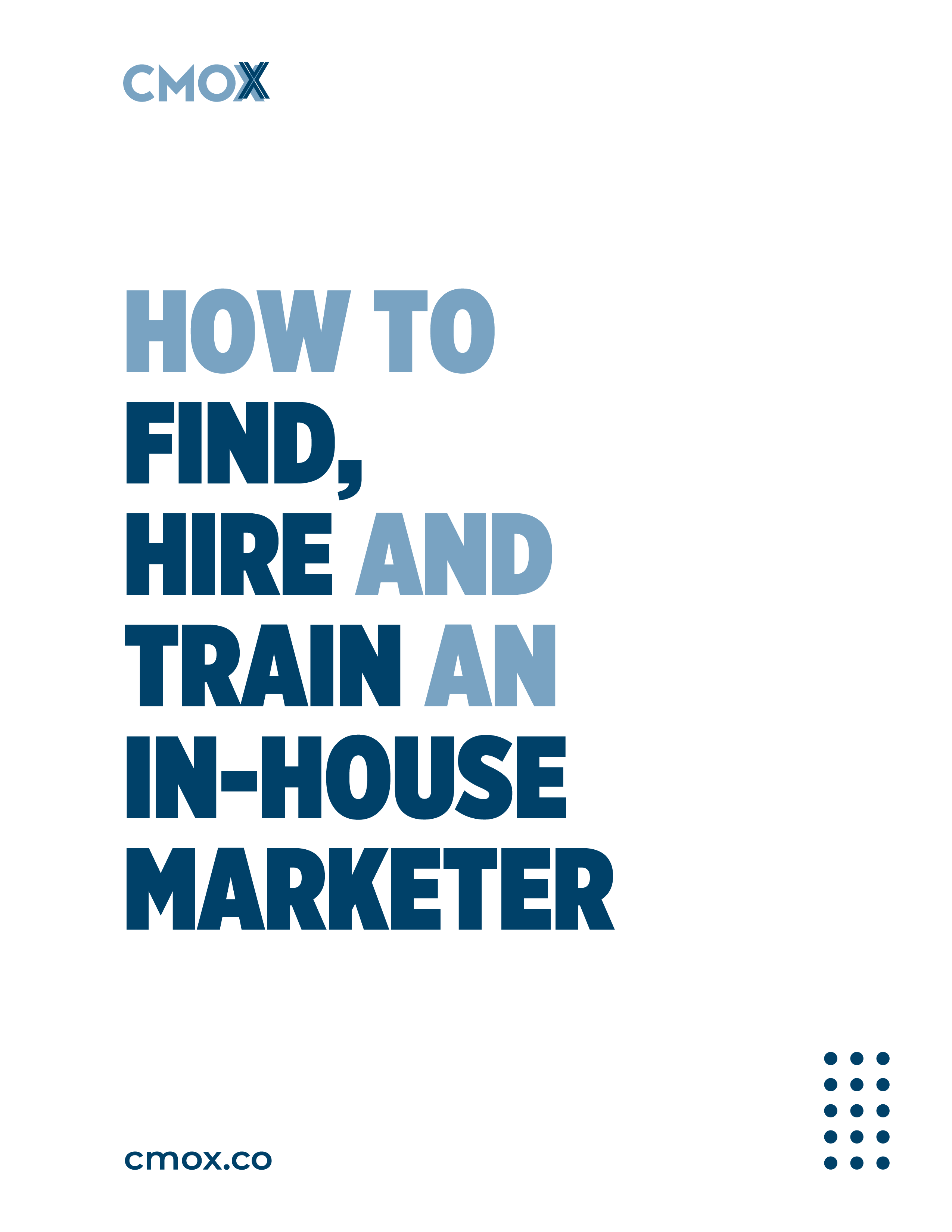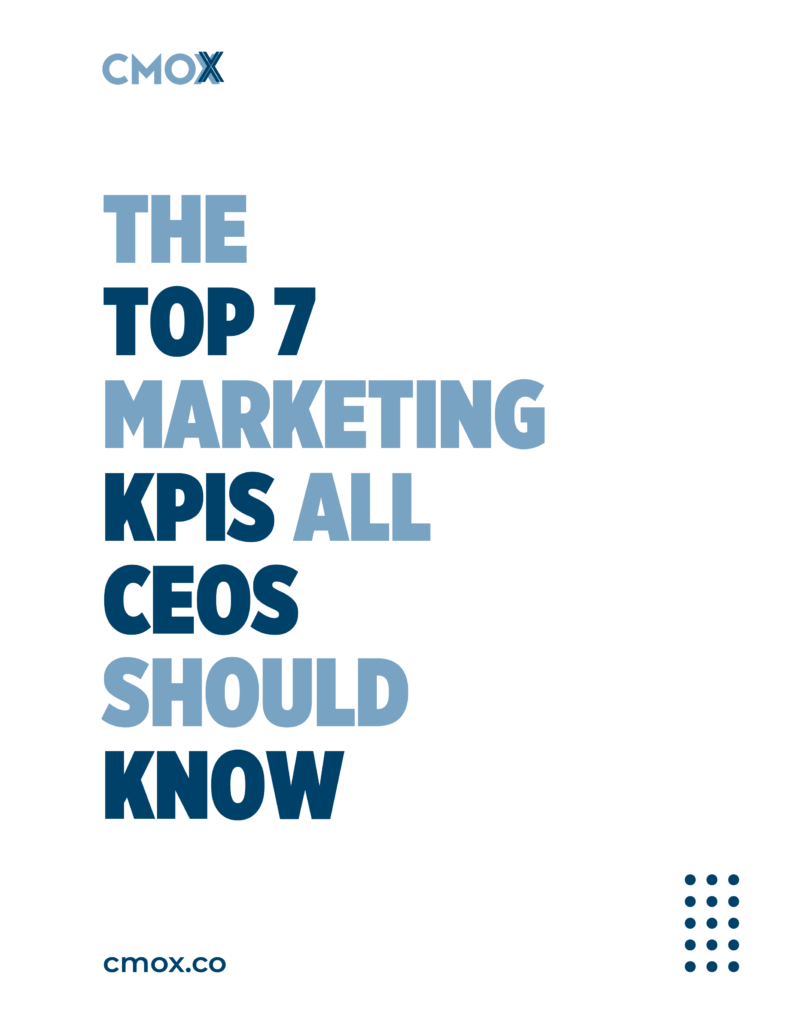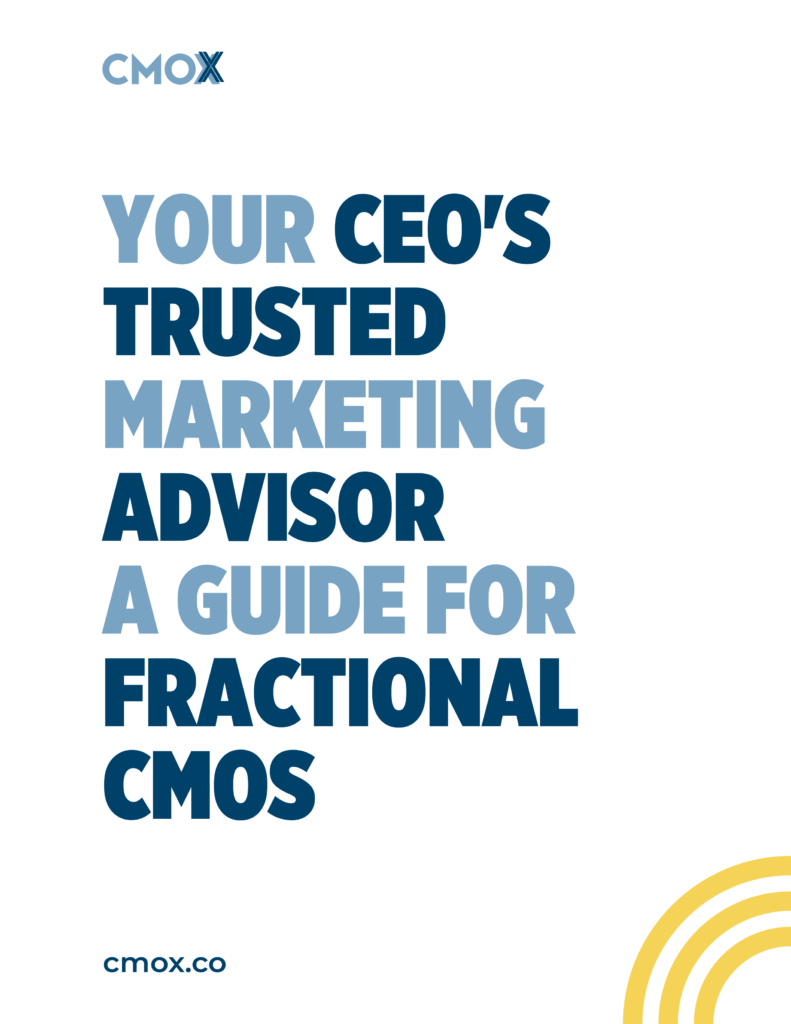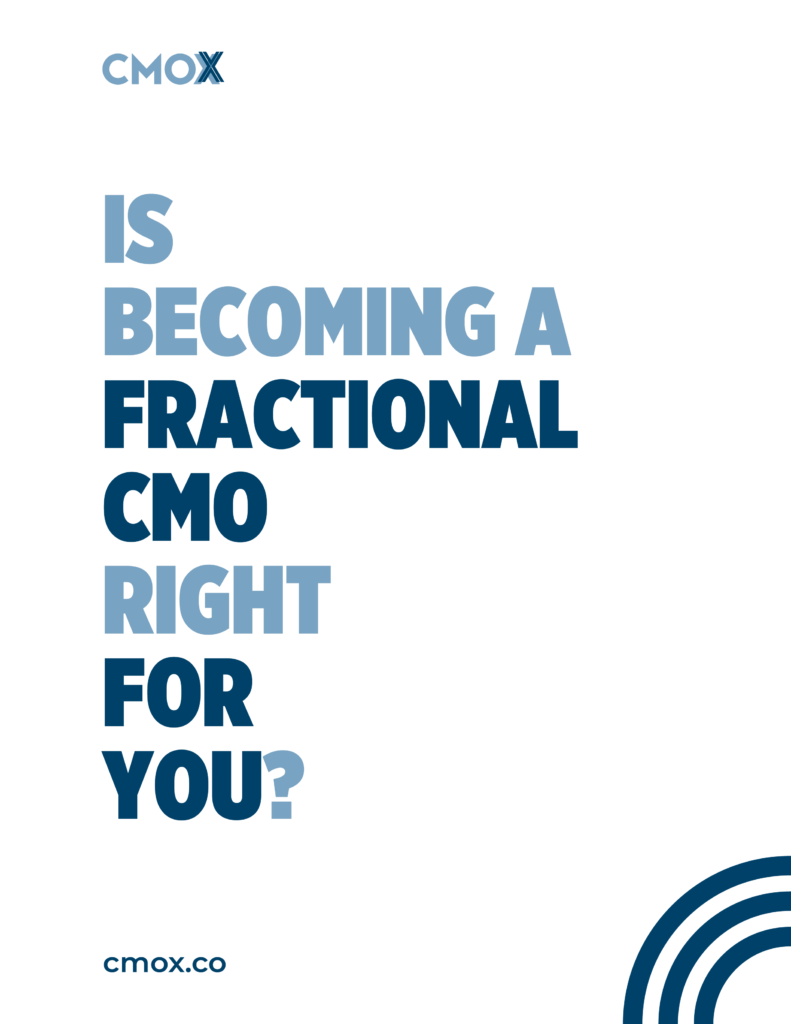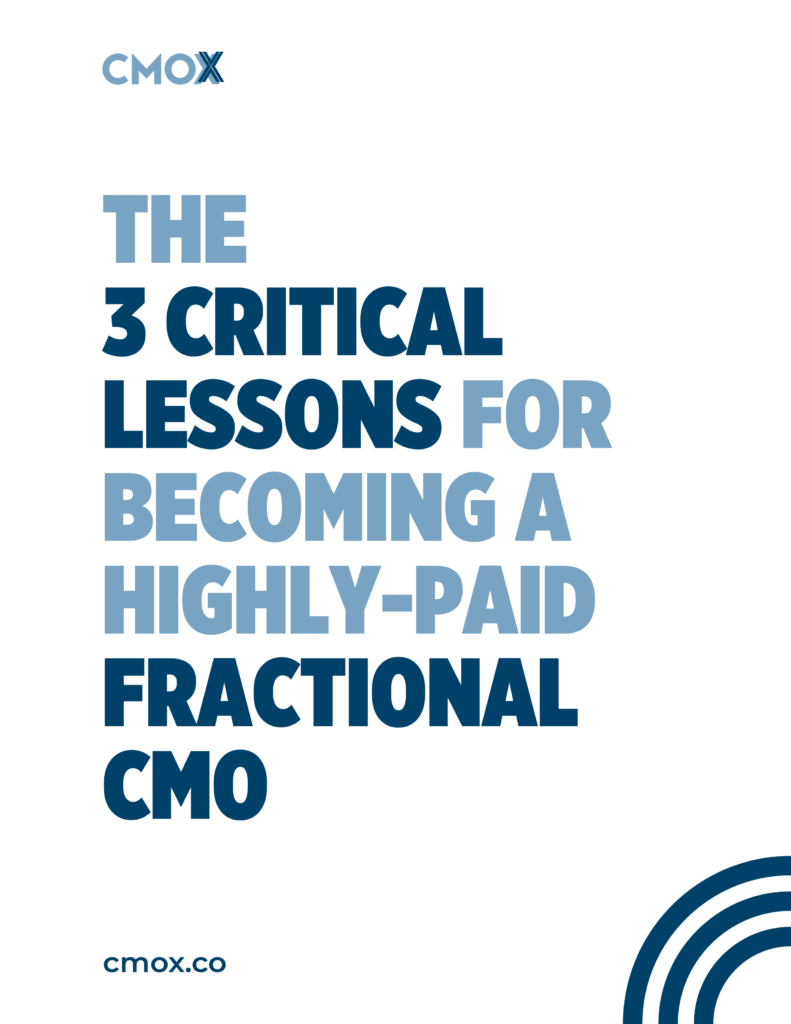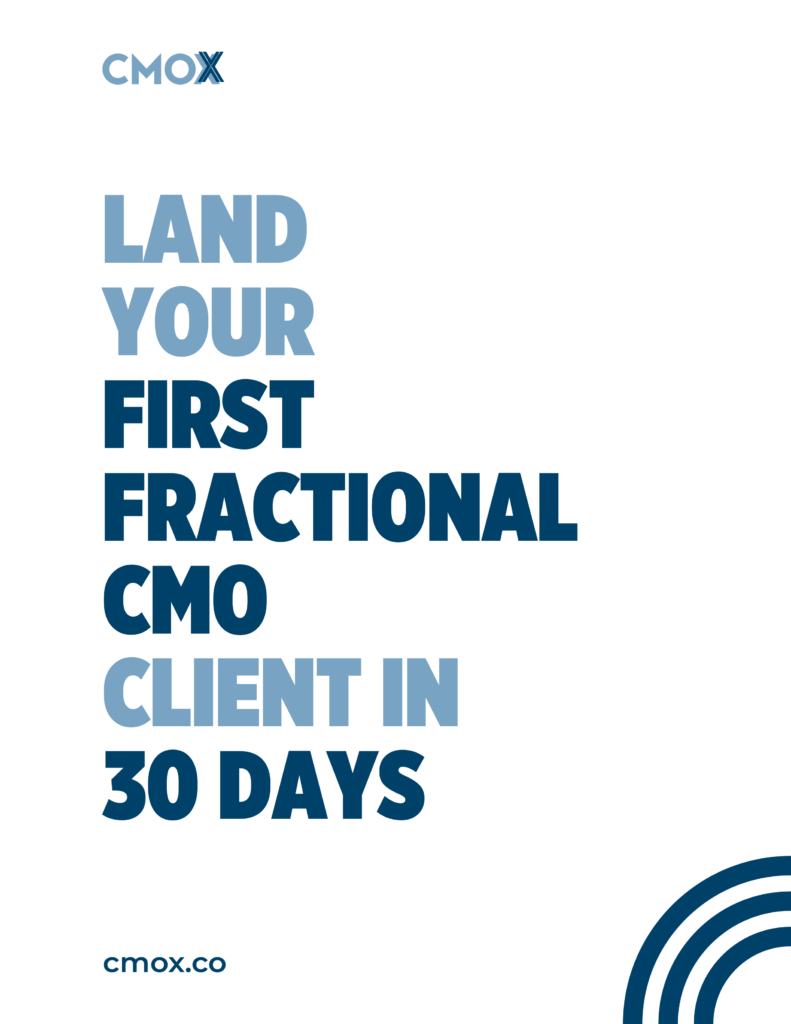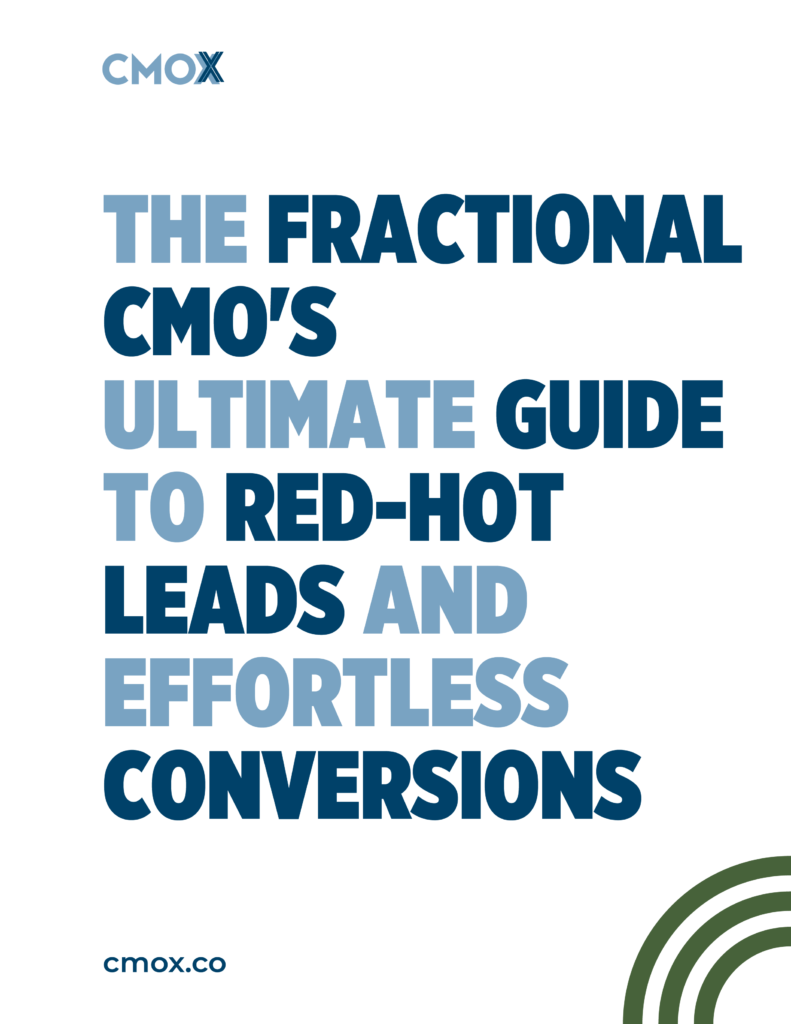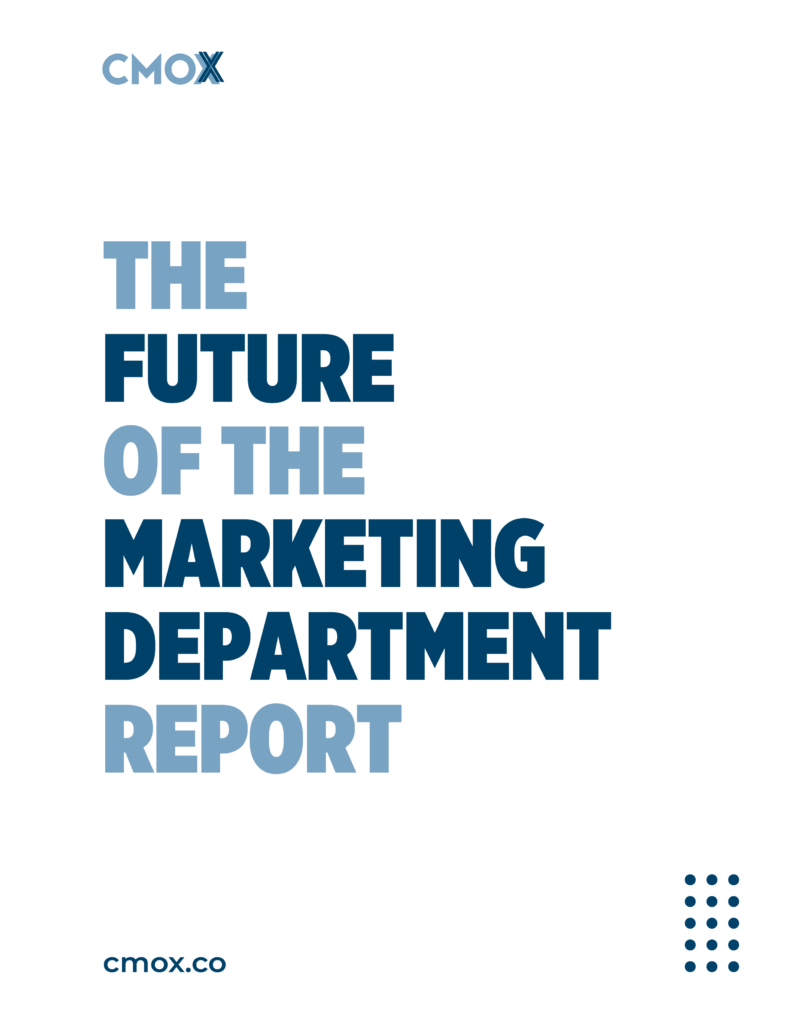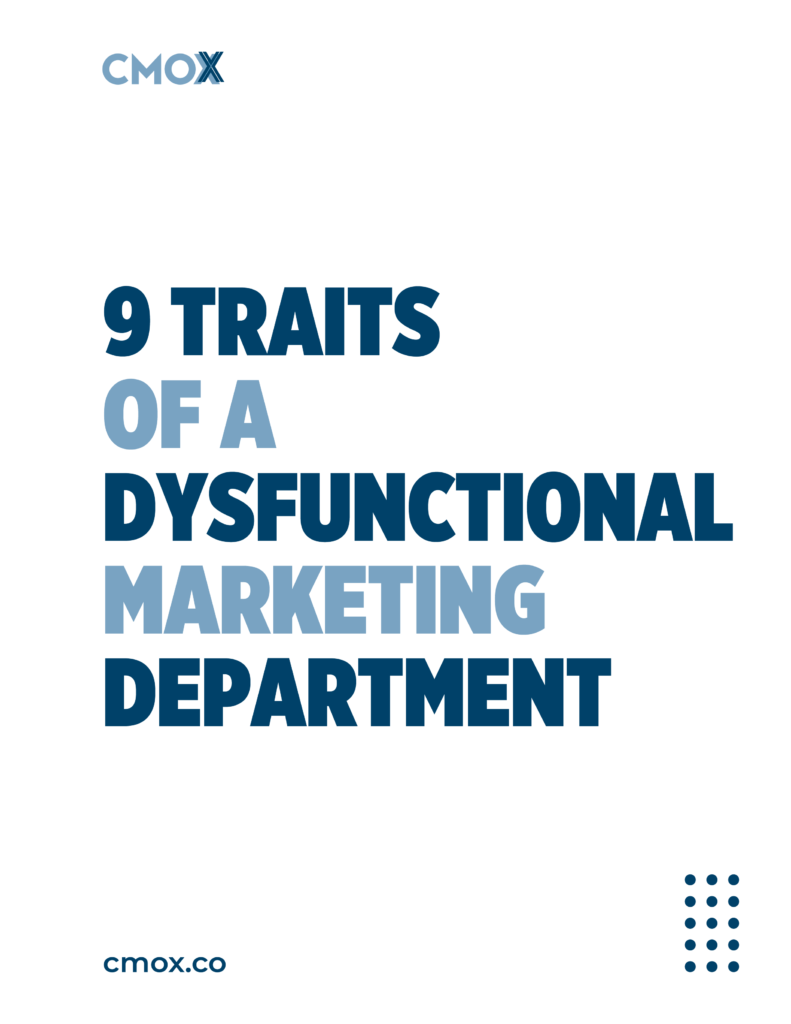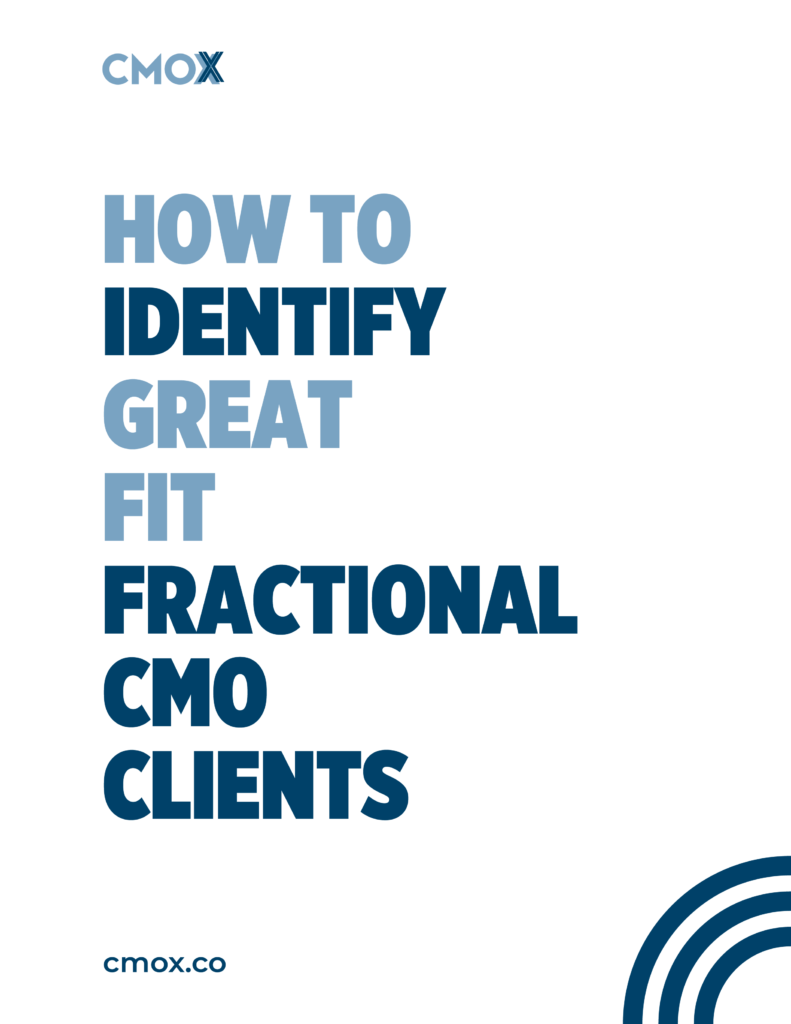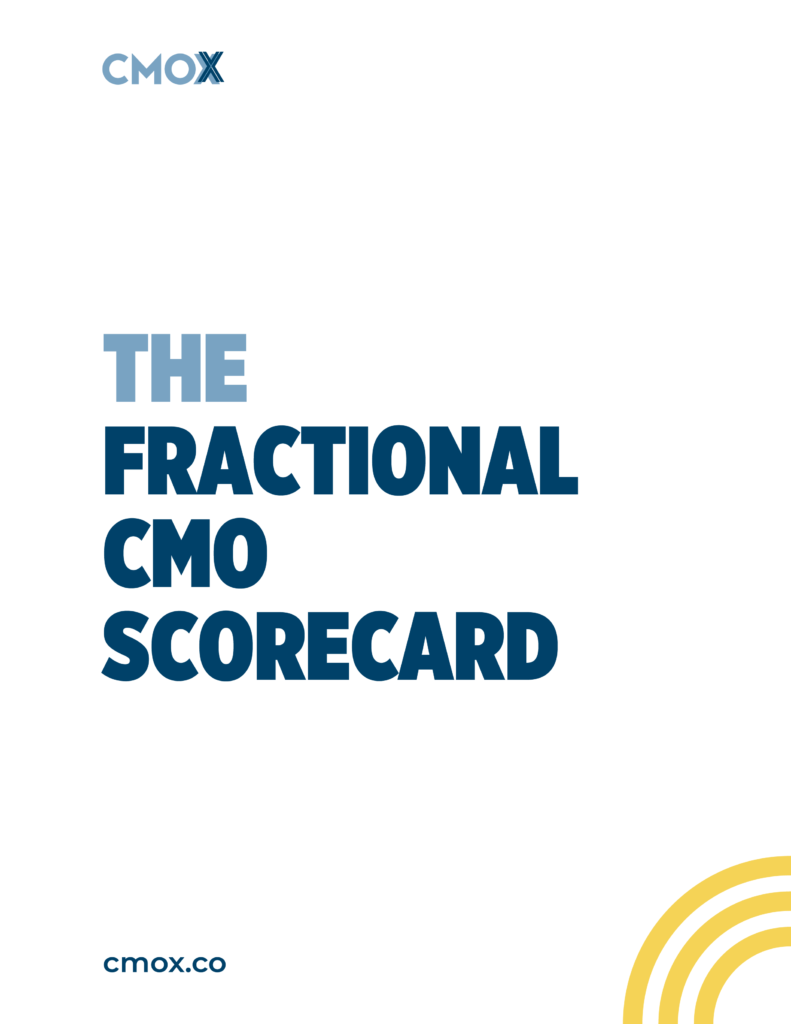Ep #120: Is Being a Fractional CMO Even a Real Job?

In this episode of The Fractional CMO Show, Casey Stanton tackles a question many marketers quietly ask: Is being a Fractional CMO even a real job? Through sharp insights and personal reflection, Casey makes the case that the corporate “safety net” is long gone - and that the real opportunity lies in betting on yourself.
He explores why today’s market pressures - from AI disruption to global competition - are pushing corporate marketers to rethink their path, and how the Fractional CMO model offers freedom, financial stability, and long-term upside. Casey shares the story of his father’s career at IBM, lessons on mediating structures, and the mindset shift required to build your own future instead of relying on outdated systems.
Whether you’re in a corporate seat wondering if you’re next on the layoff list or ready to lead multiple clients with confidence, this episode gives you a roadmap to independence, relevance, and sustainable growth.

Episode highlights:
In this episode of The Fractional CMO Show, Casey Stanton tackles a question many marketers quietly ask: Is being a Fractional CMO even a real job? Through sharp insights and personal reflection, Casey makes the case that the corporate “safety net” is long gone – and that the real opportunity lies in betting on yourself.
He explores why today’s market pressures – from AI disruption to global competition – are pushing corporate marketers to rethink their path, and how the Fractional CMO model offers freedom, financial stability, and long-term upside. Casey shares the story of his father’s career at IBM, lessons on mediating structures, and the mindset shift required to build your own future instead of relying on outdated systems.
Whether you’re in a corporate seat wondering if you’re next on the layoff list or ready to lead multiple clients with confidence, this episode gives you a roadmap to independence, relevance, and sustainable growth.
🔑 Key Topics Covered:
- Why the corporate “safety net” is an illusion in 2025
- The hidden dangers of staying too long in a corporate role
- How AI and global labor shifts are transforming the marketing landscape
- What it really means to be a Fractional CMO (and why it’s safer than a 9–5)
- Why commitment and community matter more than credentials
- The future of fractional leadership – and why 2026 will be a breakout year
- How to build long-term wealth and low-anxiety success as a CMO
Transcript:
00:00:00 Casey: In this episode, we’re going to talk about is being a fractional CMO even like a real job? And shouldn’t you be embarrassed to tell people that you’re a fractional CMO that you’re some like lowly consultant? If you’ve ever thought that way, tune in. I’ve got some thoughts for you. Let’s go.
00:00:17 Casey: Marketers of the world. Why do we work hard to solve small problems? Why do we reinvent ourselves and our clients over and over? And why are we giving away marketing strategy for free?
00:00:29 Casey: With advancements in AI, we’re all seeing the marketing department shrink from the bottom up, and companies need you to serve them as their fractional chief marketing officer. It’s time to solve bigger problems and bring home a bigger paycheck.
00:00:39 Casey: It’s time to create the lifestyle we deserve and to make a greater impact. This is the Fractional CMO Show, and I’m Casey Stanley. Join me as we explore this growing industry and learn to solve bigger problems as marketing leaders.
00:00:59 Casey: The Fractional CMO Show is sponsored by CMOX, the number one company to teach you how to attract, convert, and serve high paying fractional CMO clients on your terms.
00:01:13 Casey: Hey, it’s Casey and this is an interesting thought that someone shared with me recently, which is kind of an embarrassment about being a fractional CMO. And this person came from the corporate space and they understand the corporate world really well and uh
00:01:31 Casey: You know, the corporate space is great. The corporate space gives you a sense of structure, and therefore a sense of meaning, especially if you tie in with one of these behemoth companies that uh maybe catapult you from maybe just like a lowly title in marketing, maybe all the way up to the CMO. Maybe you ride them to an IPO.
00:01:51 Casey: Maybe you’ve been with companies as they’ve gone public, or they’ve massive investments, or they’ve spun out new products, or you’ve launched really cool innovations or whatever. That’s really cool.
00:02:01 Casey: And for a lot of people that the value that they get is really a sense of belonging and a sense of structure. So I first heard this from Dan Sullivan from strategic coach. And Dan says that we’re losing the mediating structures in our lives.
00:02:20 Casey: And that is so true. There are so few mediating structures in your life. I would assume certainly there are in mine, right? So for example, if you went to college,
00:02:31 Casey: you had an alma mater, you have an alma mater, do you still care about it? Do you still watch the football team or maybe they’re great at golf or whatever? Do you care? Do you take your family back there? Maybe you do. Like I have some college buddies, they still go back to college, their kids have gone to the campus and all that kind of stuff.
00:02:45 Casey: They go down to there for football games. It looks like a ton of fun. They still have that mentality that that’s an important structure in their life. It gives them a sense of meaning.
00:02:59 Casey: Other people don’t have that they’ve lost that mediating structure, but they might have found it in a corporate job. My dad had worked at IBM for 25 years before he retired. And my dad feels that, you know, I would assume uh he passed away recently, but he identified as an IBMer still.
00:03:18 Casey: You know, my mom was asking me, you know, is there anything from dad’s office that you want? It’s like, you know, not really, right? I don’t, I don’t really want any of the stuff that he kind of used in his office. But there’s one thing it’s a sign.
00:03:29 Casey: from IBM and it says, think, that’s it. It’s back when IBM kind of had a brand of think. And I want that. And why do I want it? For a lot of reasons. You know, it’s a memento. It reminds me of dad. It reminds me of the office, but like deeper than that,
00:03:45 Casey: also, it’s this thing at IBM. It like created this sense of structure for dad that he carried that in his office. You know, how many years, he had retired when I was in sixth grade. I have to do the math on that, but he would have been retired for
00:03:59 Casey: longer than he was employed there. So if you do the math on that, it’s kind of wild that a phase in his life was a mediating structure, an identification for him. Despite him leaving it, he still felt the sense of uh pride for IBM. Interesting, right?
00:04:20 Casey: Mediating structures are important because they give us a sense of meaning. They give us a sense of belonging. There are cartographers on our life that says, you belong in this tribe. You are here on this map.
00:04:30 Casey: And when people have that, they feel a sense of like, oh, I get where I’m at. I get who I am. I get how I can experience the world. I kind of understand when I’m owed, right? You would think that a Rockefeller, even today, or a Kennedy born today, or a Musk born today, these people have a sense of
00:04:49 Casey: mediating structure in their life where they’re like, came from this family, we came from this wealth, we came from this prestige, my father, grandfather, whoever did these things. Like, they have a sense of understanding of who they are, there’s a pride.
00:05:03 Casey: But by and large, most people have lost that. And then add to that, you know, the crazy amount of content that we all consume before breakfast, even, you know, you flip open Facebook, and you get your reels, you get your YouTube reels, you get your Instagram reels, you get your TikToks, like it’s just
00:05:19 Casey: just noise and it fills us and it leaves us hungry.
00:05:26 Casey: This is that term like the hungry ghost, right? You can never fill it. It leaves us hungry. And what we long for is that mediating structure. At some point, there’s other things that we long for, but certainly a mediating structure that tells us who we are and that we’re okay.
00:05:39 Casey: And for a lot of people, corporate jobs tell them that they’re okay. They know that they just had a job at this company, and that company went to an IPO, and they had the salary, and they know that they could make a lateral move over to another company for a similar title or the next title up. They know they can play that game.
00:05:55 Casey: They like, they know where they are in the great scheme of things in like the job marketplace. They know that they understand an industry and they have a couple of connections. And if they need something, they could probably call someone and ask a favor and maybe get introduced to someone and get a job. And like
00:06:09 Casey: they believe in this world. That’s like very safe. I have a family member who is in law and it’s just like very good at playing the game of being a lawyer, and they’re
00:06:24 Casey: poised to likely take over the law firm. uh And it’s a larger law firm. And when I think of that, it’s like, that’s a mediating structure, man, that’s got to feel good for them. That’s got to feel like confidence. That’s got to feel like I can plan my life, I can plan my vacations. Like it feels great.
00:06:44 Casey: But I want to tell you that I think there’s very few people that are actually safe in the corporate space. That’s the reality. The corporate world is not safe, right? We think of like the folks in HR are our friends and we all know that they’re not.
00:06:59 Casey: They could be nice people, but they will fire you in like 15 words in a 15 minute calendar appointment that they sneak on your calendar on a Friday. And in this current time, which as I’m recording this, the government is still shut down.
00:07:14 Casey: you know, all the stuff that’s happening related to that. And we’re in Q4, there’s all like the kind of what’s happening globally, what’s happening with our trade partners, what’s happening with the wars, what’s happening with AI, what’s happening with innovation, are we in an AI bubble?
00:07:29 Casey: All the YouTubers will tell you that we are. We’re seeing like big people talking about that. We’re also potentially getting into a war with China. Like there’s all these crazy things going on all the time. And I think it is easy to lose a job
00:07:43 Casey: in a corporate world right now. I think you could get fired in your corporate role that fast and they’ll forget about you tomorrow. You pack your stuff, you walk out, security walks you out. You know what I mean? Like it’s over. And then what are you going to do?
00:07:56 Casey: These corporate people believe in the safety that my father had, which was retire with a pension. IBM will take care of me. You know, my dad was a golden circle guy. So he was flying around the country or flying around the world for like salesman trips because he was a successful salesman.
00:08:14 Casey: That doesn’t exist really anymore. Sure, like you could say like Casey in this like medical device industry, there’s a small sector that this does exist. I’m sure it does. But by and large, this whole like corporate will take care of you, and your family thing. That’s gone. That’s gone.
00:08:30 Casey: Those mediating structures that we used to have around a corporate job taking care of us are gone. Knowing that we could go work some one place for 25 years, it’s gone. It just doesn’t exist anymore. Companies that exist today may not exist in five years.
00:08:44 Casey: Will they exist in 25? Who knows, right? So a lot of corporate folks believe that they’re safe. And I think today they’re anything but safe. And add to that these pressures, a globalized workforce.
00:09:00 Casey: There’s like a billion people in Africa coming online right now. And I think that’s notable because if you go to like Upwork, which is one of my favorite sites to hire talent from If you go to Upwork and you start looking for talent and you say, I’ll take them worldwide, you’ll find a lot of like Nigerians. You’ll find a lot of Ethiopians.
00:09:16 Casey: You’ll find a lot of Africans who are like for the first time online, and they’re willing to do work and they’re very inexpensive because you know, our dollar is very strong for their local currency.
00:09:28 Casey: And it’s like we used to think that India was cheap or we used to think Philippines was cheap and now those prices have kind of moved up towards like minimum wage in the US, and Africa is much cheaper. There’s just like a billion people who are getting on the internet
00:09:39 Casey: who want some of our money. They want to work, they want to have the same sense of meaning and be able to create for themselves and their families. And I think that that’s like a very interesting pressure.
00:09:51 Casey: So let’s just take for a second an African who is like computer savvy, but is also paired with chat GPT. They’re going to outwork most young people who are like looking for jobs right now. Right? These people are online, they’re fighting, they’re going to work hard
00:10:06 Casey: and they’re cheap, like cheap, cheap, cheap. Like when, if you were to pay them, they’re asking rates, you’d be a little embarrassed that you’re paying so little. That pressure exists. Add to that the pressure of just AI proliferation.
00:10:20 Casey: that everything’s available through AI. Maybe it’s good, maybe it’s bad. I struggle a lot of the times to find good lasting utility from AI. But that doesn’t mean that there aren’t pockets where AI is incredibly powerful.
00:10:32 Casey: You know, like lovable.dev just to mock some stuff up. Obviously, all the content and copywriting you ever need, you can get first drafts done within minutes, as you know, through AI tools. Like that kind of stuff is AI strong for it.
00:10:48 Casey: You have this pressure of folks losing their corporate job because of AI adoption or just shedding talent or the market shifting, so they’re letting go of whole departments or whole project teams.
00:11:01 Casey: And then you also have this rising billion Africans that are armed with AI tools that are like hungry and they’re fighting and they’re willing to work for a lot less money than those Americans that just lost their job. And you have those two pressures colliding and it’s scary for the workforce.
00:11:18 Casey: As you also know, uh It’s like impossible for an intern to get a job like what’s the path from college to first job? It’s tough right now. Because those internships, those paid internships are kind of evaporating.
00:11:33 Casey: Fewer people are getting more stuff done with leveraging AI. You know, it’s just it’s just hard. So when someone says like, I’m a corporate person, and I’m worried about becoming a fractional CMO… To me, it’s like someone standing on this beautiful ship called the Titanic that’s sinking saying
00:11:54 Casey: I can’t go off on my own. Like I have to stay here for this beautiful corporation and the corporation’s sinking or it’s changing rapidly or they’re gonna offshore all the talent in a minute. They’re gonna send it over to wherever, to Europe. They’re gonna send it to Philippines. They’re gonna send it to just some other country. They’re gonna put 25 % of the workforce. They’re gonna adopt AI.
00:12:18 Casey: and replace them with like that kind of stuff is going to happen and people are going to lose their jobs fast. And it’s going to be a whiplash and there’s no social safety net to catch them. And that’s scary and dangerous. And anyone who thinks, well, I’ll just ride it out for the next couple of years
00:12:30 Casey: Think maybe like maybe you can. I think of my niece, she recently graduated with a PhD. And like, I should know, but it’s like neuroscience and she was the last of her kind, because when she was walking, her university saw all of their
00:12:56 Casey: investments from the government effectively just dry up. So people that are in the lab lost their lab budgets to do their projects. So these people will just never be able to finish their dissertation, and therefore never be able to graduate with their PhD. So their PhD is just going to get protracted. We’re going to see that kind of stuff like those little things that are just going to
00:13:18 Casey: chip away at the structures that we know and we’ve trusted. I believe that’s what’s happening. And it’s, you know, scary. I guess if you want to put like maybe morality to it, it feels bad. But it is just a reality. And my therapist, she would always say to me
00:13:40 Casey: Insanity is choosing not to believe reality. So she would say, she’s like, are you just like not accepting reality as it is? Okay, right. You have to accept that these pressures are happening in the market.
00:13:56 Casey: So let’s talk about being a fractional CMO. What is it? Being a fractional CMO is just going and being the marketing strategist and leader for companies. And instead doing it for one company
00:14:08 Casey: You’ll do it for like two or three or four or five companies at the same time. And it’s not because they can’t afford you full time, although that may be the case. It’s because they don’t need to afford you because what they need to be doing doesn’t require a 40, 50 hour week full time in-house W2CMO. It requires the right strategy.
00:14:28 Casey: It’s easy to kind of boil this down and make it sound too simplistic. But like, by and large, most companies need more leads, or they need more appointments or more qualified appointments or more sales.
00:14:38 Casey: And if you just focus on that one thing, like the strategy isn’t that significant. It’s like, okay, we got to go in these new channels, we got to build this department out, we got to create these creatives, we got to get our uh our technology to track things correctly, we got to leverage big data appropriately, we got to make sure customer service takes care of folks or whatever.
00:14:54 Casey: But like, it’s pretty binary. You identify a problem, you solve it. It’s very binary. It doesn’t require the 40, 50, 60 hour week of work for a majority of the fractional CMO clients that our CMOs get.
00:15:08 Casey: 10 hours a week is plenty of labor to do it. So going off on your own and winning a fractional CMO client and then building a practice where you serve fractional CMO clients is to me like getting on the lifeboat, right? It’s like getting on the lifeboat
00:15:26 Casey: of the sinking Titanic. If you’re in the corporate space, think of that. You’re in this beautiful three-piece suit, you’re a guy, if you’re a woman, you’re like in this beautiful cocktail dress, right? You’ve been enjoying life on the sea, going to the new world. Everything’s going to be beautiful, and then it starts sinking.
00:15:40 Casey: And your choice is to stay on and hope that you’ll, you know, naturally retire before that ship sinks, or you plan your escape and you get on that lifeboat, and that lifeboat, like doesn’t have to be bad. It can definitely be
00:15:54 Casey: amazing. It could take you to let’s just say a new island full of riches. It could take you to that new world where you’re paid from multiple different companies. That’s, that’s the opportunity that’s here that keeps you safe. If I have one paycheck that comes in every two weeks and I lose that I’m screwed.
00:16:11 Casey: If I have three clients that pay me every month, I lose one. It’s not fun to lose it, but I only lost one. I go win another one and I’m kind of back to where I was. But I never get to a place where I’m as screwed as I would be falling into the open market.
00:16:25 Casey: Additionally, as we think of that rising billion plus all the people that are losing their jobs, all of these people are like still needing work. Like they won’t work for the meaning of it. They won’t work because they need money
00:16:37 Casey: to survive, to live, to thrive, whatever. Those people are going to be fighting for the limited new jobs that are available. So I mean, to me, it’s like the future is really to be your own boss.
00:16:51 Casey: That’s why I love like the franchise space. I think people really want to start their own business. So they want to be franchisees. I think that’s a cool place to go. I think for marketers, we want to start our own business. And I think the best way to do it that has the lowest risk for you is to be a CMO for multiple companies.
00:17:04 Casey: Because it’s service work, you have like no fixtures, you have no equipment. You know, you can run it on the laptop you have the phone you have. Maybe that’s not great hardware software, but like you can do it. And you can get running and you can make money on it. So service based businesses have
00:17:18 Casey: a low cost or low barrier for entry, which is good and bad. I’ll talk about that in a second. But certainly the good part about it is you can get started as a fractional CMO quickly. The bad part about low barrier to entry is a lot of other people are going to call themselves fractional CMOs.
00:17:32 Casey: So I still believe that we’re very early into the space of being a fractional CMO. And if you don’t move quickly, the market will be flooded with low quality people. The good news, the great news is these low quality folks, they just won’t stick around, they’re going jump from this idea to the next one to the next one. So there’ll be a fractional CMO for like three months.
00:17:52 Casey: Never land a client and then give up and then move on to the next thing where there’s some AI integrated for businesses and then they’ll never get a client and then they’ll move on to the next thing where they’re going to start a pressure washing business. Who knows?
00:18:04 Casey: I’m not worried about those people. Yet that is noise in the market. So you need to commit to being a fractional CMO, and you got to go get your first client and you got to go win, serve that client, stick with him for a long time.
00:18:18 Casey: The mediating structure used to be the corporate job, maybe currently is the corporate job, or it used to be your religious institution. Maybe it still is. Maybe it’s your community. Maybe it’s your PTA. Maybe it’s where your kids go to school. Maybe, you know, there’s like some mediating structure. My suggestion is that you establish your own mediating structure.
00:18:37 Casey: I want to tell you that’s hard. So I want to invite you to be inside of a larger mediating structure. CMOX provides that container where people are successful that are sharing what they’re doing.
00:18:47 Casey: I mean, today in the boardroom WhatsApp chat, we just had a bunch of blowups. One of our members had a really big payday. Another one had a really great opportunity. They’re trying to like buy for it. Another one just signed a new client that’s in a new industry for them.
00:19:01 Casey: And it’s like a ton of fun. And when you’re around those kinds of people, you see the value of a mediating structure like CMOX and what it provides for you. It provides guardrails. It provides the do’s and the don’ts, kind of the bylaws, kind of the rules of engagement.
00:19:15 Casey: And if you follow that, you feel a sense of like, clarity and purpose. And I swear it makes a difference. You know, we have the Geneva Convention, right? We can’t do war crimes to people when because we’ve signed the Geneva Convention.
00:19:34 Casey: We just can’t do those things. And why do we not do that? Well, we want to follow the Geneva Convention on the outside because it looks good, right? But really internally, it’s because it changes the way our soldiers behave when they come home.
00:19:50 Casey: If they were allowed to go out and do these atrocities, when they came home, they’d be pretty messed up, right? So we have these rules of engagement, of how we engage with, you know, the enemy.
00:20:04 Casey: That aren’t just to make us look good, although certainly, you know, following the Geneva Convention does make us look a lot better than if we didn’t, but it really helps us with a sense of who we are, and then helps us with the integration in society. It creates a mediating structure
00:20:22 Casey: It’s a weird idea, but I think it’s very important here. You wanna be in community with people that are doing it. Your former colleagues won’t understand. They simply won’t get it. And a long time ago, I gave up helping people that don’t want help.
00:20:41 Casey: You can’t help these people if they don’t want it. The moment they’re like, hey, I’m thinking about getting out. Tell me about that fractional CMO thing. Take an hour call with them, do a walk and talk, have them come over to your house for the weekend and just like help them launch their business. Whatever you want to do when they’re ready.
00:20:55 Casey: But when they’re not ready, they won’t get it. It’s like for those who get it, no explanation is necessary. For those who don’t get it, no explanation will suffice. That’s where we are with this. Former colleagues won’t get it.
00:21:11 Casey: And therefore the question is, do you even care about their opinion? I remember years ago when I was like doing this work from home internet thing, people didn’t get it. My mom didn’t get it. My dad didn’t get it. They were like, get your ass to work, go get a job. I was like, well, like, frankly, I’m doing a lot of work right now. I’m working really hard. It’s just like on my laptop in my bedroom and I’m just laying in bed.
00:21:31 Casey: But I was working really hard. I was probably getting more done than someone who’s in like a traditional job, but it didn’t look like it, and can I convince them? Not really. I tried. I tried to show them, show them the projects I was working on. It didn’t matter. What mattered was over time, it became evident that I was right.
00:21:48 Casey: But no amount of convincing was necessary because I couldn’t convince them. So if your former colleagues or people like in your professional sphere won’t support you, like who cares? Who cares? You don’t need their support to be successful.
00:22:08 Casey: When you become a fractional CMO, when you go off on your own and start your own business and really commit to it and you say, is the thing I’m doing, know, damn it, I’m doing this thing and I’m going to do it until I’m successful. And I’m going to keep doing it until I get more successful and I’m going to be the best at it.
00:22:20 Casey: If that’s your intention, if that’s where you’re going, you’re going to go through the most significant growth spurt that you’ve had in a long time. I put self-employment, like having my own business right up there with being married and having like a partner who is my absolute mirror.
00:22:38 Casey: That’s a big one, right? If you’re married, or if you have a long term committed relationship, like you know what that’s like, that person understands you and sees you, and they trigger you in certain ways, right? And what is that triggering? It’s just like something inside of you that you haven’t owned.
00:22:50 Casey: Incredibly powerful that being a monogamous relationship. And another big one is having kids. Like what a reflection of who you are when you have children or like, self understanding or how you take care of yourself. Like your kids are a direct reflection of that. So the three big ones.
00:23:06 Casey: getting married or having a long-term committed partner, having children, starting your own business and running it. There are layers of self-understanding that you go through through this process. And you become a more centered, more clear, more total person when you’re not looking outside of you for the validation of what’s right. So this is kind of like a, there’s a duality. At one level, I’m saying
00:23:36 Casey: Create a sense of understanding that exists within you that makes you, I guess for a lack of a better term, excuse me, like unfuckwithable. Like you’re committed, you’re right, you know this is the thing for you, you’ve got that.
00:23:50 Casey: But then also put yourself in a community of people who are doing the same thing, who have similar beliefs to you. When you pair those two things together, it’s like hyperdrive, right? It’s like you’re playing Mario and you push down that B button and now you flying
00:24:05 Casey: Like that’s the difference here. It’s a commitment to yourself and a commitment to your growth. And then it’s surrounding yourself with other people. Jim Rohn says we’re like the five people we hang out with the most. So if I want to look at what your wealth and success and happiness and how good your marriage is going to be and you know, how, how your kids are in your relationship to them and all that kind of stuff.
00:24:25: Casey: I want to know that I don’t have to talk to you. I just go talk to your five closest people in your life, and I’ll figure it out. Like I’ll be able to guess very well kind of the kind of person you are. So my suggestion is in your career, you can’t be alone.
00:24:41: Casey: You can’t go do this stuff alone. It is impossibly hard. You second guess yourself all the time. There’s no one you can talk to. You feel like you’re going crazy. You have a big call, you don’t know what to do. You freak out you, know, medicate, however you do. Maybe you drink too much, you smoke too much, you play too much on YouTube or TikTok, or you go for a walk or you
00:24:59 Casey: disassociate from business or whatever, you’re not prepared or you’re over prepared and you’re anxious or whatever the thing is. When you don’t have a mediating structure that helps you kind of bring it down to a protocol, a process, a framework, a way to engage. You’re just off on your own. You’re inventing all the time and it’s sloppy and it’s hard.
00:25:21 Casey: And at best you’ll be successful, but it’ll be painful, and at worst you’ll blow your opportunities. And right now, every opportunity is so critical. I mean, we’re going through the biggest shift that we’ve gone through, I would say, as a human kind, as a population, and in a long time.
00:25:38 Casey: You know how long? I don’t know. I’m not a sociologist. I don’t know, like the dot com bubble, they say was kind of like this. This AI bubble is pretty wild. Like what’s happening here? Will it pop? I don’t know. I can’t guess the future. But I do know that things are shifting. Businesses are changing.
00:25:55 Casey: 2026 will be a big year for the fractional CMO if you choose to be in that position. So is being a fractional CMO even a real job? If that’s your question, my counter to that is, is working at a corporate job even a real job anymore? Is it even something that you can bet on?
00:26:13 Casey: And if it’s not, then what is the best place to bet? It’s on myself, it’s on yourself. Every day I wake up and say, how do I do more for me and my family?
00:26:23 Casey: If you have that energy, how do I get more from me and my family? And the way that you do it is not by stealing, but by creating value and taking a percentage of that home. It’s not me saying to someone, give me a hundred bucks. It’s me saying, here’s a thousand bucks. Can I have a hundred bucks of that? When that’s your relationship, you create the value and then you take some back.
00:26:40 Casey: That’s an awesome place to be. If you’re just asking, hey, will you hire me? Will you give me a job? Can I apply here? You should hire me. You should pay me well. You should give me this title. No, go the other route.
00:26:51 Casey: I’m gonna build this department out for you. I’m gonna be this marketing leader for you. I’m gonna be the marketing strategist and leader that you’ve always needed and wanted. That dynamic is so different and it’s so refreshing for companies.
00:27:03 Casey: Companies say things like, that’s exactly what we need. That’s what they’ll say. They don’t say stuff like, we don’t need that, that’s too expensive, right? It’s we need that, how do we pay for it? Maybe that’s the question, but they need it. What you’re offering here is a fractional CMO they need.
00:27:21 Casey: what you’re offering as a mid-level marketing manager from a Fortune 500 company is like ephemeral, like they can’t understand it. Like it just, doesn’t land for them. You have to give clear and direct value.
00:27:35 Casey: People that live in the um corporate space use a funny dictionary. And I, I’ll try to remember some of the terms that they use, but they talk about things like uh sales enablement.
00:27:50 Casey: You know, like that kind of stuff. They have like these terms that are just so kind of of the lexicon of the others that are in the corporate space, and certainly maintain that, be able to speak that stuff.
00:28:06 Casey: But no one wants sales enablement. No one wants sales enablement. What do they want? They want calls booked on the sales team’s calendar. That’s it. It’s not like, hey, let’s do a sales enablement project. It’s like,
00:28:18 Casey: Let’s get 25 calls a week booked on the sales team calendar. We’ve got three guys there. That’s 75 calls a week. That’s about 10 a day that we’ve got to get booked. Like clear, direct, focused. When you’re the fractional CMO, when you’re the CMO
00:28:31 Casey: you have that level of focus, people respond, they respect it, they want it, they want that clear deliverable for you, from you. They don’t want the language of what it sounds like to maybe have some level of success. They want actual success.
00:28:45 Casey: So one of the biggest lessons I had when I left the agency where I was like always kind of selling new projects and kind of, you know, kind of fluffing some stuff up a little bit, right? Like making people want it. Instead of that
00:28:57 Casey: I just am now in a position of saying like, here’s what you need. Here’s what’s realistic. Here’s the budget. Should we go ahead? Yeah, cool. I got it from here. I build the team out and we do it. People love that level of direct outcome. I think back to March 2020, when the world shut down,
00:29:15 Casey: with all the lockdowns for COVID. And I didn’t really lose any business. I didn’t lose any business. uh I lost a small client later on in the pandemic. It was kind of unrelated. That was kind of their business thing. Had that business, two partners split ways.
00:29:31 Casey: Had that not happened, I would have kept all of my business. And everyone else kind of in marketing effectively lost their business. And their difference here is because businesses don’t want to get rid of strategy and leadership, but they can afford to
00:29:44 Casey: pause on SEO or PPC or whatever the tactic is, but they still need that strategy. They still need that leadership of their team. It’s still critical. The show must go on. And if you’re the fractional CMO, instead of the full-time CMO, your price is already on the lower side for them.
00:29:57 Casey: So they’re not even like questioning your fees. So I found myself through the pandemic, maintaining all of my clients and ultimately adding clients. And that’s what’s possible here. So like, let’s go back to the big idea. Is being a fractional CMO even a real job? My answer is
00:30:14 Casey: Yes, absolutely. And more than a job, it’s also the opportunity to partner and to win big. I talked to a good friend of mine last night. We hadn’t talked in a while. So we were catching up and talking about kind of what’s good in life, and he is a patent attorney.
00:30:30 Casey: and he’s played that game of traditional job stuff. Like, he’d go get a job, he’d work at it for years. And he has vesting schedules. And you know, one company got purchased by another company and it reset some of his vesting and he has a cliff in a certain amount of time and like he lives that world
00:30:47 Casey: where he’s like building up all these RSUs. It’s very cool. Like I used to think it was like the greatest thing ever. But last night, we just had a real talk about it. And he was like, yeah, and all of that kind of horse trading and jumping around and trying to find the best deals with the clients and whatever
00:31:01 Casey: with the companies that he was working for as an employee. He’s like, I only got one payout. He’s like, I thought I’d get four or five by now, but I only got one.
00:31:11 Casey: He’s incredibly smart. He’s incredibly hardworking. He’s done some really important stuff for these companies, yet he only made it once. So he just lived on that salary, which was not necessarily a bad salary, but that big kind of a F you money that he was kind of planning on getting and never came.
00:31:26 Casey: And that’s realistic. That’s really realistic. It just doesn’t come. Let me tell you what does come. Working with a client and figuring out a way to get upside and having two clients at the same time that you’re contractually given
00:31:39 Casey: upside at a certain date. That’s what we’re playing with in boardroom. How do you get a client in two years to pay you a half million dollars, quarter million dollars, a million dollars, that kind of stuff is real. Can you do it? I don’t know.
00:31:50 Casey: Can your niche sustain that? I don’t know. We haven’t talked. It’s a possibility though. And I think that this is the route of cashing and beg with great companies, helping real companies do something important, stick with them for a long time, really help them out and then cash in.
00:32:08 Casey: This is not you getting equity. This is you getting fat paydays. That’s a possibility on outcome. So I used to think like, oh man, what if I could be an L7 at Metta? What if I could make that L7 salary money, make it 500, $700,000 a year or more as like a marketing person at Metta?
00:32:28 Casey: Sounds like it would be pretty cool. But there’s so few jobs there. The likelihood that I’m going to go there without some top pedigree, college degree, you know, I have a Michigan State Environmental Policy degree.
00:32:42 Casey: I’m never going to get that job. So what’s left for me? Probably plenty of corporate jobs. But how long do I have to bet on a huge company that I have limited control over for me to get maybe some upside?
00:32:53 Casey: I think the risk there is just so high. I would rather work with three clients and have upside opportunities with two of them, and just go live that life and get paid well every single month, keep my hours to 30 a week or less, and then
00:33:08 Casey: Maybe one hits this year, maybe one hits two years later, maybe then I add like a new client and then another new client wants those payout because they probably went to liquidity, and the company probably got sold to someone.
00:33:19 Casey: I’ll add in a new client, a new client. So like every three years, I think it’s very reasonable for you to line up a big fat payday. And that’s on top of a really healthy monthly. This is the new innovation. This is like the latest stuff that’s happening that I’m building, and that our CMOs are building inside the accelerator. It’s like,
00:33:37 Casey: How do you do 30 $40,000 a month in revenue working 30 hours a week? And then how do you also every couple years get a big fat payday from a company that might be doing an exit or a sale or hitting some growth target or whatever?
00:33:51 Casey: Those things are a possibility. You can’t do that in the corporate space. You can’t you can have like a sign on bonus. But what’s that 20,000 30,000? Not not to knock 2030 grand, but like 2030 grand doesn’t change your life. 2030 grand, you know, makes it easy to pay off a credit card or maybe gets you a car or something
00:34:48 Casey: 20, 30 grand isn’t it? You want to make 200 grand, 300 grand, 500 grand. You could do that if you set up your upside correctly. So I think that to me, every sign points to be a fractional CMO and don’t be a consultant.
00:34:25 Casey: Consultants tell people what to do and they don’t see it get done. Consultants come in with their bag of tricks for a month, two months, maybe three months. And they convince people that they’re smart. And everyone’s kind of like, I don’t know if you’re smart or not
00:34:36 Casey: and they lay out a strategy and they’re like, see you guys, I got paid, I’m leaving. And then the team’s left to implement this consultant strategy. Consultants aren’t useful. You have to be the CMO if you want to stick around.
00:34:48 Casey: So I think of consultants in a whole different world than the world that we’re in as CMOs or CMOXs. CMOXs are obviously, I think, a rare breed of CMOs because they’re process driven, because they get fast results for their clients, because they’re able to work with the clients on a win-win-win where the client wins.
00:35:06 Casey: where the business wins and where the CMO wins. And when you align right there, I the upside potential is nuts. And also the impact is huge. mean, impact is such a big deal. Working with great companies, helping them launch great products,
00:35:20 Casey: making the lives of the people that you work with better. These things are all available to you as a fractional CMO. It is the coolest thing. All right, so I think that, um you know, what would I advise my kids if my son is five? uh But let’s say he was 25
00:35:35 Casey: he’s like, Dad, I really want to get into the business space. Like, what do I do? Like, where should I apply? I would say, just like go spend time at an agency, and go learn marketing for the next couple years. And then, you know, in five years, let’s hop into the fractional CMO seat.
00:35:52 Casey: And when your first client or two, like that would be the move that would be the route that I would encourage him to do 100%. If he wants to be in the business space. Maybe he wants something else. Maybe we’ll move into a time here in the near future where
00:36:05 Casey: All of the automation and all of the AI gets taxed when they replace jobs. And those taxes go towards our roads and our community infrastructure. And we find ourselves with more time to just recreate, to play music, to create non AI generated art, to read, to dance
00:36:26 Casey: maybe, maybe to play ham radio. Maybe that’s where we’re going. But probably not. Right? But probably not the world that we’re probably running into very quickly is one where there are it’s to be less people working fewer jobs available, it’s going to be harder in companies want marketing strategy and they want marketing leadership
00:36:44 Casey: they don’t need a full time CMO. And they’re going to choose you if you’ve positioned yourself as the best as the one who has a process to follow. The one who has a brain trust of 100 other CMOs who are working kind of alongside them that want to see them successful, you know, where I’m in your back pocket helping you when you get stuck. That’s the kind of person is going to be successful kind of in this new
00:37:03 Casey: brave new world. So if you want my help, if you my team’s help, if you want to earn your way into boardroom, and be on our text thread and text from the moment I fall asleep, the moment I woke up, that’s what happened. Last thing I did last night was I replied to a boardroom text and this morning the first thing I did was answer one.
00:37:21 Casey: If that’s where you’re, if that’s where you want to be, uh book in a call with my team. Just go to cmox.co slash call, and you’ll book in a call. It’s a short call. We ask you a couple of questions, see if we can even help you and if we can, then we introduce you to some of the folks on my team and ask you more questions and you ask them questions, and it’s just like, it’s super casual
00:37:38 Casey: not high pressure or anything, but we’re able to figure out if we can actually help you. And if we can, we tell you what that looks like and how we can help. So I’d love the opportunity to help you so that you can stack 2026 to be a big year. And if you don’t, that’s fine too.
00:37:50 Casey: I really do think though that unless you’re like, unless you’ve got something that’s really working for you, this is the next move. I just can’t think of what else it is. It’s not to create a SaaS.
00:38:01 Casey: It’s not to create a tool. It’s not to create an app, not to create some marketing service. It’s it’s to be the leader. That’s the top one. That’s the one that no one can take away from me. I work with a client right now. I’m signing two year long contracts.
00:38:14 Casey: I can work with clients for two years until they exit, and I get a part of that kick out that payout from from the exit. That’s a cool place to be. You don’t have to sell a lot of clients every single year. If you keep them for two years at a time, right? Life’s pretty chill. It’s pretty relaxed. I would say
00:38:31 Casey: as I share this, this is kind of like the reinvention of the fractional CMO role, or it’s not just about getting paid short-term well, it’s about creating long-term wealth and creating a level of simplicity and low anxiety. You know, when your contracts are month to month and can really do it any moment, every month is like a bit of a grip and you kind of freak out a little bit.
00:38:57 Casey: If instead, it’s the other way, and your contracts are multiple years long, and there’s a good incentive for everyone to stick together and work together. It’s way more fun, you make a lot more money, everything’s better. So that’s where I’m taking this industry.
00:39:11 Casey: If you want to come along and see what’s working, get the alpha, you know, get the actual Intel of what’s working today, just got to be in boardroom. So you got to come into the accelerator, we got to get your sales ready, which we’re going to do as quick as possible.
00:39:25 Casey: Then you gotta go win your first client that pays you at least $10,000 a month. And maybe you have two clients that maybe are a little less than 10K a piece, but you gotta cross that 10K a month threshold once you’re there. And you’ve got all of our tools and training and my whole team to support you.
00:39:37 Casey: But after that, that’s when you and I get to spend even more time together and I get to coach you directly on winning your next biggest client. You gotta get that first one, right? That first one is just like a
00:39:48 Casey: It’s just a, it’s like a coming of age. It’s like, you got to get that first client. It’s hard to do as you get started. And we’ve got processes to make it simple and faster and make sure you do it right. But there’s work to do. But after you get that first one, your second one, a lot easier.
00:40:02 Casey: Your third one, way easier. Your fifth one, it’s like, I can’t believe this is my job. That’s where you want to be relevant, well-paid, serving great clients. So again, you want my help? CMOX.co slash call. Maybe I’ll see you a call soon. All right. See ya. Bye.
00:40:18 Casey: Thank you for sticking around for the full episode. As you know, learners are earners, but you’ve got to take action on what you heard today. For more information and show notes, visit FractionalCMOShow.com.
00:40:31 Casey: If you’d like me to answer your questions on an upcoming episode, you can share your question at FractionalCMOShow.com. And last, please hit the like and subscribe button so that I know that this content is helpful to you. All right, go get them.
Join Our Community
We are excited to announce the Fractional CMO Community Facebook Group. This aims to be a place where Fractional CMOs or marketers considering becoming a Fractional CMO can connect and share ideas.
Locations CMOx® serves
- New York
- Philadelphia
- Los Angeles
- San Francisco
- Chicago
- Houston
- Dallas
- Austin
- Miami
- Atlanta
- Denver
- Boston
- San Diego
- Seattle
- Portland
- Minneapolis
- Milwaukee
- Detroit
- Phoenix
- Washington D.C.
- St. Louis
- Toronto
